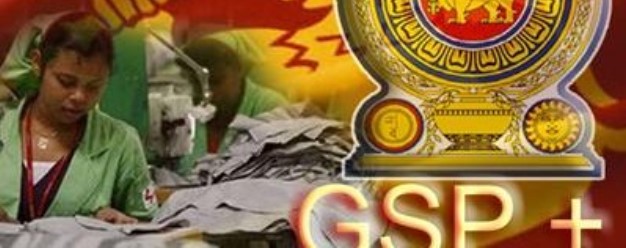Human Rights Action Plan etc. called for; talks in Brussels next week.
In its haste to regain the GSP Plus facility, the Ministry of Foreign Affairs has agreed with the European Union (EU) to implement a sprawling list of 58 conditions linking human rights, national security and other domestic concerns with trade, a document obtained by the Sunday Times shows.
Among the 58 conditions imposed are to revoke the Prevention of Terrorism Act, to expedite cases of remaining detainees, to introduce a new Human Rights Action Plan, review the status of the Tamil diaspora organisations and individuals on the terrorist list, to devolve power under the new Constitution, return all private lands to owners in the North, adopt a policy of National Reconciliation and on National Resettlement, finalise the re-settlement of all displaced persons, and to ratify the Convention on Enforced Disappearances with accompanying legislation as well as issue certificates of absence.
The EU insists that the conditions be met before Sri Lanka can even consider applying for the GSP Plus. The stringent stipulations come with short deadlines (most have now elapsed) and were accepted by the Foreign Ministry “without any form of negotiations” at the EU-Sri Lanka Working Group on Governance, Rule of Law and Human Rights in January, authoritative sources said.
Many were kept in the dark about the list, the sources said, adding that Prime Minister Ranil Wickremesinghe had been “furious” when he learned of all the commitments made. He has appointed a steering committee to process it. Meanwhile, the MFA is expected to update the list to reflect new deadlines.
“This is a clever ploy by the EU to rope us in on so many commitments and actions that it will be holding us to for many, many years to come,” a senior official said on condition of anonymity. “After all, given our middle income status, Sri Lanka is eligible for the GSP Plus only for a few more years.”
David Daly, EU Ambassador to Sri Lanka, has informed the Government that implementation will be monitored and that it will be necessary to quantify progress, wherever possible. He has said that a “continuous flow of progress from Sri Lanka” is a key factor in being able to decide when Sri Lanka should lodge its application.
Commerce Director Sonali Wijeratne, who is said to be vehemently opposed to linking trade with human rights, is being sent to the Belgian capital, Brussels, for further talks next week. Ms Wijeratne will lead a delegation to the EU-Sri Lanka Working Group on Trade and Economic Relations Cooperation scheduled for Wednesday. She has asked to include Additional Solicitor General Yasantha Kodagoda in the team to handle the non-trade components of the discussions.
The Government has committed to rehabilitate all ex-combatants by 2017 and to amend the Code of Criminal Procedure to include the rights of detainees by 2016. It has been agreed to adopt new regulations for public disorder management by the police by the end of March 2016; review the Public Security Ordinance; expedite the processing of remaining cases referred to by the UN Working Group on Enforced or Involuntary Disappearances; and to establish an office on Missing Persons.
The Government has agreed to “security sector reform”; to put an end to “all surveillance, harassment and reprisals against civil society, human rights defenders and journalists”; propose legislation allowing individuals to submit complaints to the UN Human Rights Committee under the First Optional Protocol to the ICCPR and to the UN Committee against Torture; and to “reconsider the decision to establish the Press Council”.
The list also includes an undertaking to propose legislative changes to ensure non-discrimination on the basis of sexual orientation; to expedite prosecution of reported cases of torture; to launch wide public consultation and to disseminate information during the various stages of setting up a transitional justice mechanism; and to design a transitional justice architecture consistent with the Human Rights Council resolution and the results of the public consultation.
A fortnight ago, the European Commission decided to put forward a favourable report to lift the ban on Sri Lankan fish imports after the country was ‘red flagged’ for engaging in IUU (Illegal, Unreported, Unregulated) fishing practices. The EU Council of Ministers was expected to endorse the Commission’s recommendations.
Original caption: EU links human rights to trade: 58 conditions for GSP Plus
ST
